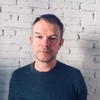Belongings removed from pockets of drug users detained during the Taliban raid. Photo: AP Photo/Felipe Dana
Drug users detained during a Taliban raid walk to a shower after arriving at Avicenna Medical Hospital for Drug Treatment in Kabul. Photo: AP Photo/Felipe Dana
Drug users waiting to be shaved. Photo: AP Photo/Felipe Dana
Photo: AP Photo/Felipe Dana
Waiting to be taken to their room in the detoxification ward. Photo: AP Photo/Felipe Dana
Forced to walk in line on their way to the detoxification ward. Photo: AP Photo/Felipe Dana
Drug users go through a medical check as they arrive to the detoxification ward. Photo: AP Photo/Felipe Dana
